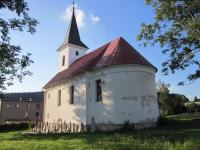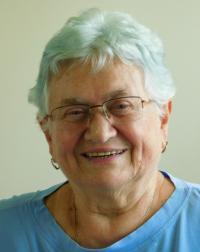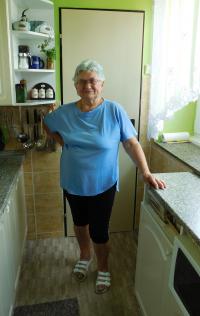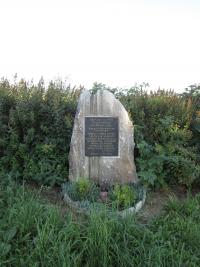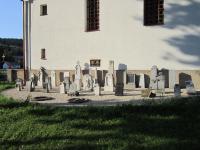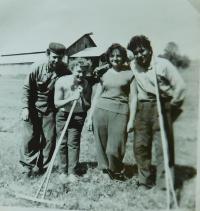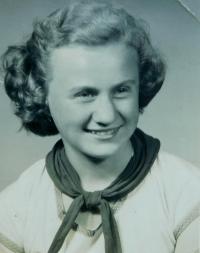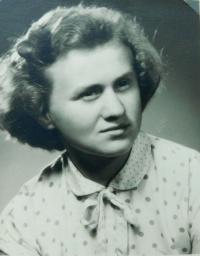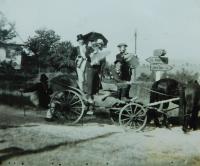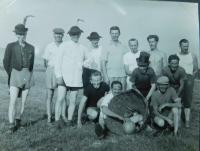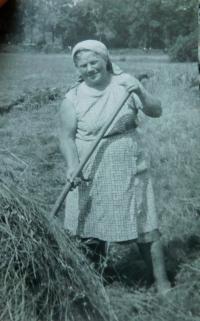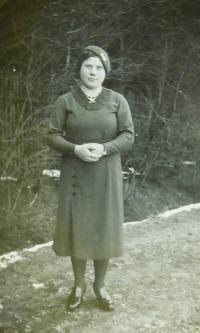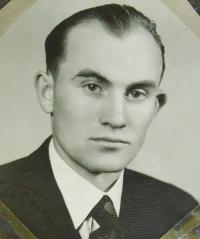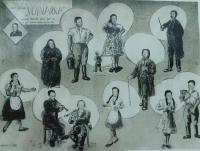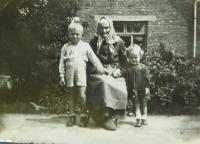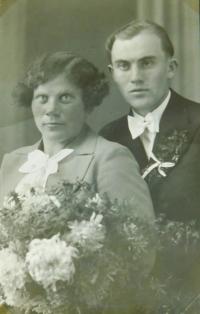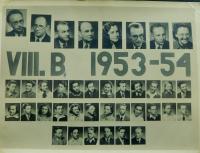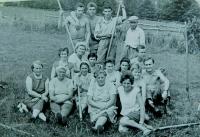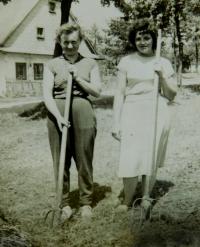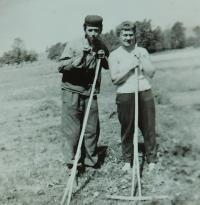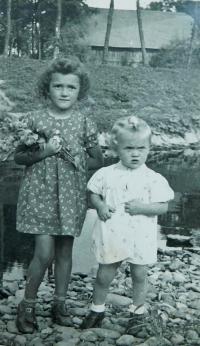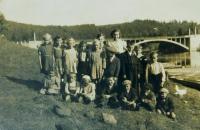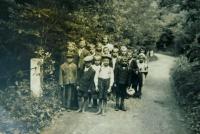When I was fourteen I had to go work in the agro-cooperative

Download image
Irena Luxová, née Suchomelová, was born on 26 May 1940 in Líšnice near Ústí nad Orlicí. In May 1946 the family moved to Horní Lipky in the foothills of Králický Sněžník. They availed themselves of the opportunity to resettle the estates confiscated from the original German inhabitants by a presidential decree. They tended to their farm in private before voluntarily joining the newly established united agricultural cooperative (UAC). Irena had to abandon her studies at an eleven-year grammar school and take up employment in the plant cultivation section of the UAC. She worked in the cooperative and later at the Králíky State Farm until her retirement. She remembers that they had a diverse group of employees of various nationalities and also the members of various displaced “kulak” families or the monks interned in the nearby monastery on Mother of God Mountain. In 2018 she lived with her husband in the town of Králíky.
